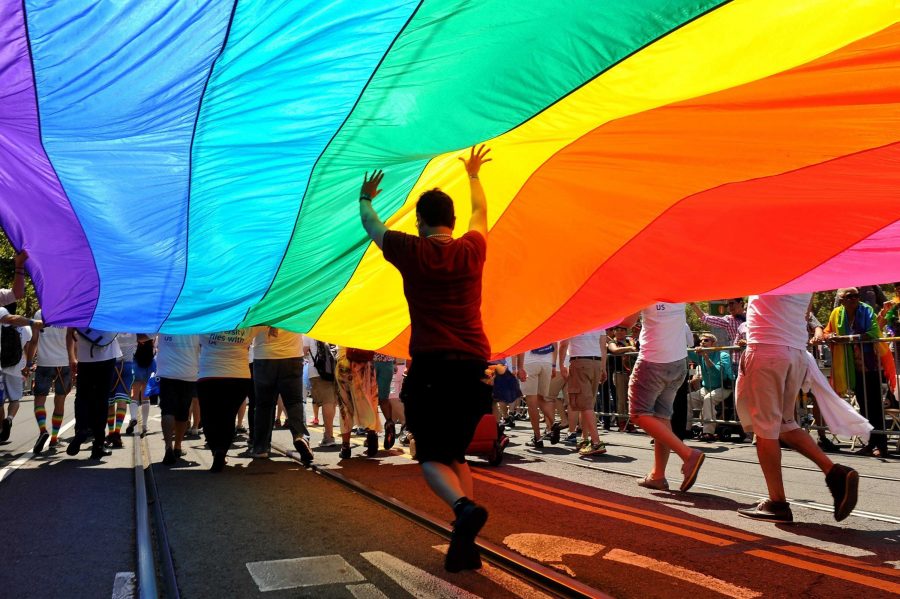Supreme court suspends same-sex marriage ban in five states
A rainbow flag engulfs a San Francisco street during a pride parade. California legalized same-sex marriage June 28, 2013 with the overturning of Proposition 8. California’s hearing inspired other states to follow suit.
October 16, 2014
A monumental step forward in human rights history was taken on Oct. 6 when VA, OK, WI, IN, and UT legally permitted same-sex marriage as a result of the U.S. Supreme Court rejecting appeals to prohibit it.
“Once one state starts something and then others kind of jump on the bandwagon, it becomes easier for other states to also make that change,” government teacher Mrs. Holly Hodel said.
Both the LGBTQA+ community and straight ally community view this event as a momentous victory and sign of progress in the U.S. federal government.
“I think it’s great, we’re really moving forward in the right direction and it’s great for equality for all,” senior Katie Amster said.
Once more than half of the U.S. legalizes same-sex marriage it will be harder for states to justify not legalizing. Gay marriage will be such an accepted component in American life, fewer will see it as foreign or unnatural.
“I think states are gonna have to realize that if they have any laws that are counter, they’re gonna have to change it because there’s no hope of them being able to not enforce same-sex marriage,” government teacher Mr. Kevin Wittman said.
As the U.S. progressively works toward acceptance, those living in non- same-sex marriage legalized areas can see what they can do for the Human Rights Campaign on their website.







